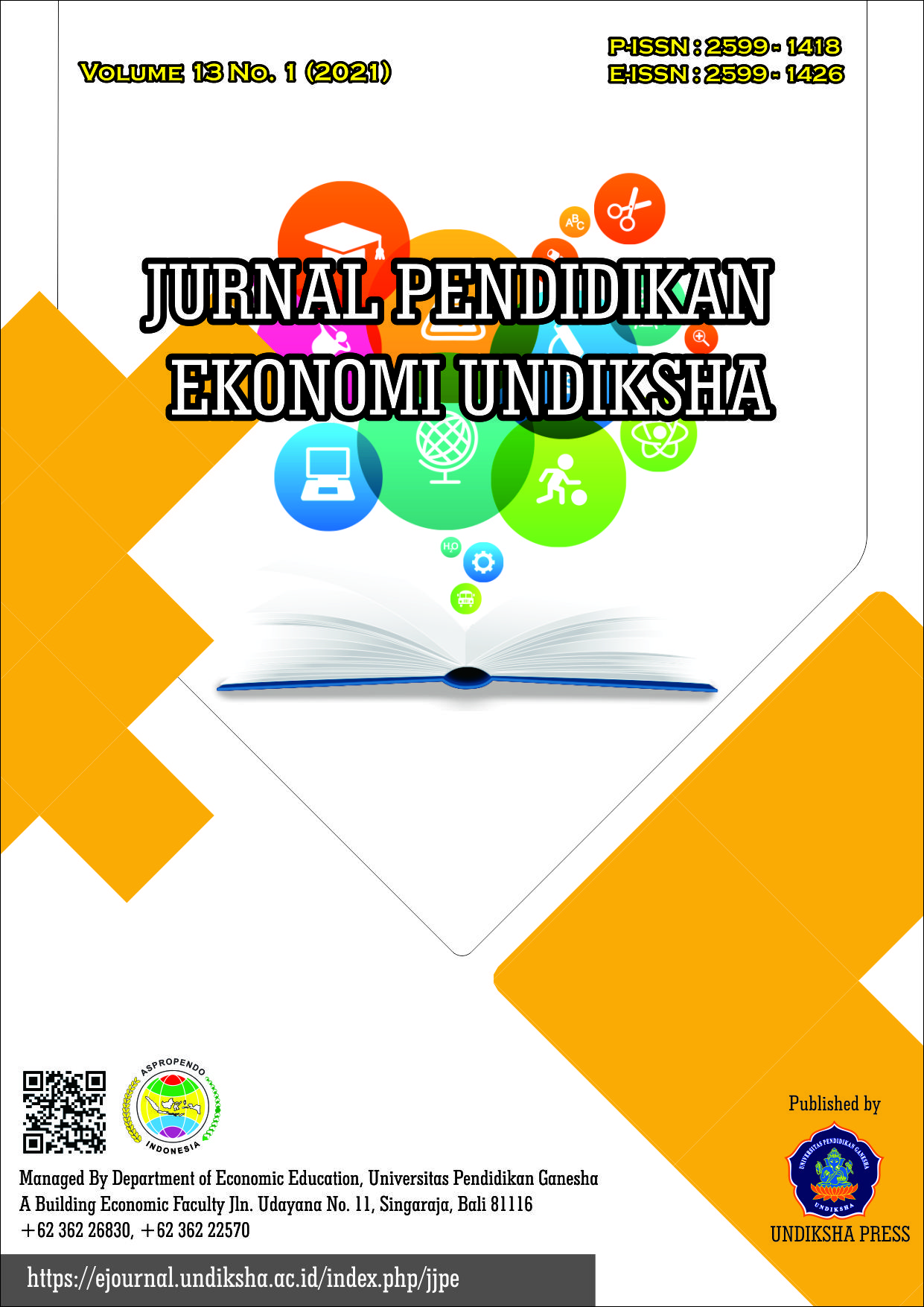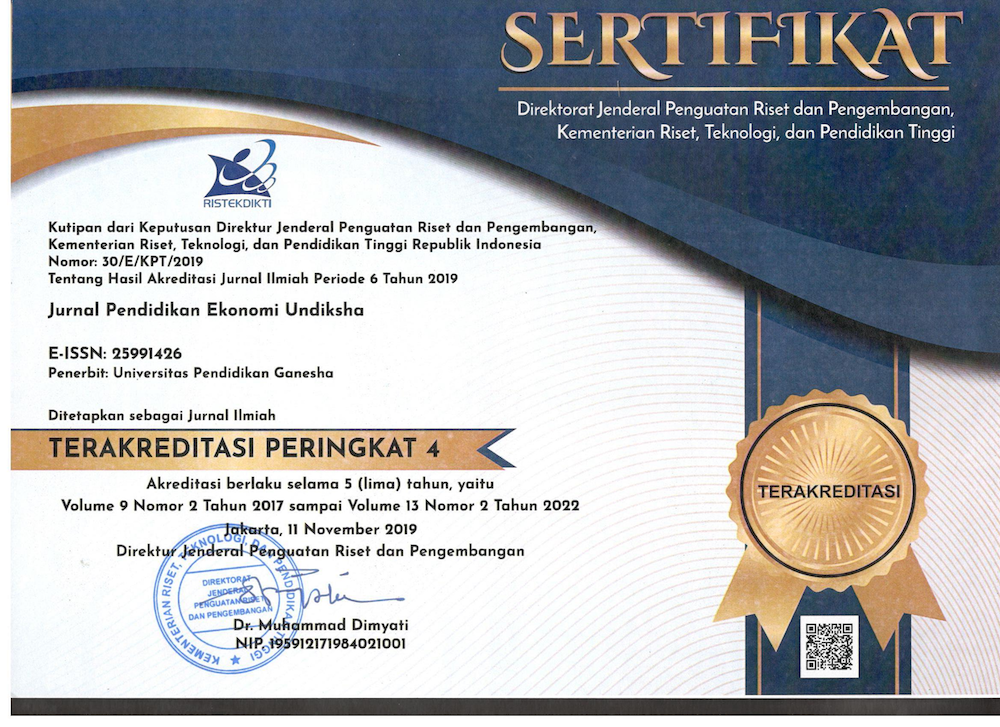Perang Dagang Amerika Serikat dan Tiongkok: Bagaimana Dampaknya Bagi Perekonomian Indonesia Tahun 2017 - 2020?
DOI:
https://doi.org/10.23887/jjpe.v13i1.34192Keywords:
trade war, United States, China, Indonesia, economy.Abstract
The trade war that began with the foreign policy of the President of the United States, Donald Trump, who imposed tariffs on goods from China, triggered China to retaliate against this policy with various other forms of protection. This has an impact on global economic growth, especially for countries that have a lot of cooperation with the two countries, including Indonesia. As for countries like Indonesia, which depend a lot on economic cooperation with the two countries, especially in the export and import sectors, it is certainly affected by their economic growth. This research is a descriptive qualitative study that aims to explain how the impact of the trade war between the United States and China on the Indonesian economy in 2017 - 2020 using foreign policy theory and the concept of protectionism. The results of the study show that the trade war between the United States and China has had a significant impact on the Indonesian economy, especially in the export sector and stock investment.
References
Ah, Oh Yoon. (2017). China’s Economic Ties with Southeast Asia. Sejong: Korea Institute for International Economic Policy.
Ali, T., Ali, W., Ali, M., Raza, B., & Niazi, A. (2018). China-Pak Economic Corridor (CPEC): Economic Transformation- Challenged and Opportunities for the Local Residents. Journal of Politics and International Studies. 4(1), 17-30.
Andina, Vidya. (2019). Implikasi Perang Dagang Amerika-Cina Terhadap Perdagangan Indonesia. Universitas Jember.
Brown, Clayton D. (2012). China’s Great Leap Forward. Journal Education About Asia. 17(3), 29 – 34.
Hudson, Valerie M. (2005). Foreign Policy Analysis: Actor-Specific Theory and the Ground of International Relations. Foreign Policy Analisis. Oxford: International Studies Association. 1. 1-30.
Lim, Timothy C. (2014). International Political Economy: An Introduction to Approaches, Regimes, and Issues. Saylor Foundation.
Li, Xing. (2015). Interpreting and Understanding “The Chinese Dream” in a Holistic Nexus. Denmark: Aalborg University.
Moelong, Lexy.J. (2017). Metode Penelitian Kualitatif. Bandung: PT. Remaja Rosdakarya Offset.
Palmer, Glenn & Morgan, T. Clifton. (2006). A Theory of Foreign Policy. New Jersey: Princeton University Press.
Ramadhan, Lazuardi Aditya., dkk.(2015). Upaya Amerika Serikat dalam Perlindungan Hak Atas Kekayaan Intelektual Di Tiongkok Melalui USTR. Jurnal Hubungan Internasional, [S.l.], v. 1, n. 03, apr. 2015. Universitas Udaya.
Sukirno, Sadono. (2013). Makroekonomi Teori Pengantar. Jakarta: Rajawali Pers.
Steinbock, Dan. (2018). U.S.-China Trade War and Its Global Impacts. World Century Publishing Corporation and Shanghai Institutes for International Studies China Quarterly of International Strategic Studies. 4(4), 515–542.
Wang, Zheng. (2013). The Chinese Dream: Concept and Context. Journal of Chinsese Political Science. 19, 1-13.
Whitney, F.L. (1960). The Elements of Research. Asian eds. Osaka: Overseas Book Co.





